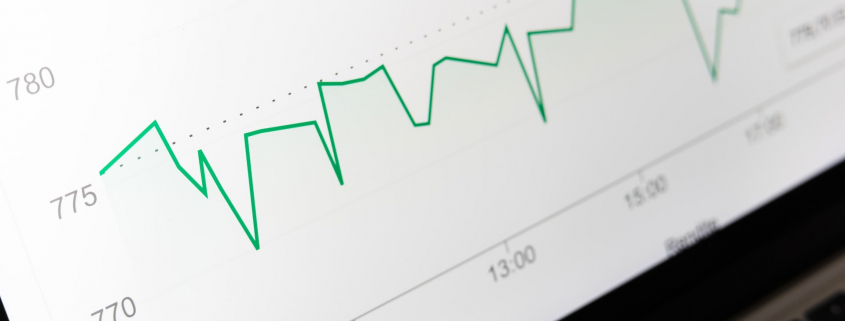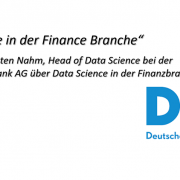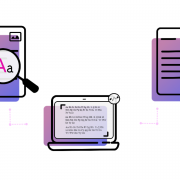Five ways Data Science is used in Fintech
Data science experts process and act upon data that digital resources produce. In the fintech world, data comes from mobile apps, transactions, conversations and financial standings. With this data for fintech, experts can improve the experience and success of businesses and customers alike.
Apps like PayPal, Venmo and Cash App have led the way for other fintech organizations, big and small, to grow. In fact, roughly 65% of Americans are already using digital banking in some capacity, whether it’s an app or online service. This growth, in turn, brings benefits. From personalization to integrating robotic advisors, here are five ways data scientists help fintech brands.
1. Personalization
Finance is one of the most personal industries out there as it deals with your private accounts and data. To match this uniqueness, fintechs can use data science for personalization. That way, customer service caters to individual needs.
As the fintech company gathers data from individual transactions, communications, behavior and interests, data scientists can then use said data to curate a better experience for the customer. They can advertise products and services that the customer may need to help with savings, for instance.
Contis is one example of a fintech that has integrated personalization into its services. Customers receive specific recommendations to create an efficient experience.
2. Fundraising
Fundraising had an interesting year in 2020. Amid racial justice protests and movements, crowdfunding took off on fintechs like GoFundMe and Kickstarter. These platforms helped provide funding for those who needed it. From here, data scientists can use fundraising in unique ways.
They can help raise money by targeting people who have donated in the past, or who are likely to donate based on spending habits. This data provides a more well-rounded fundraising campaign.
Then, once they do have donors, they can again use data to segment contributors by interest, demographic or engagement history. This segmentation helps advertise in a more personal, interest-specific way.
3. Fraud Detection
Cybercriminals thrive on an abundance of digital interactions. With the rise in digital banking — and the pandemic-driven shift to technology — fintechs could potentially see high rates of fraud. In fact, by the end of 2020, the United States saw about $11 billion in lost funds from credit card fraud alone.
Data for fintech brands will help address and prevent fraud like this in the future. As customers produce data from their transactions and interactions, it provides a better picture of their behavior. If there’s deviance, the data then shows potential fraud may be occurring.
If fraud does occur, data scientists can then use that instance to learn and properly recognize how data behaves during cybercriminal activity.
4. Robo-Advisors
With more people using fintech services, employees have a lot on their hands. They must properly address the customers’ needs and provide solutions. However, in the online world, employees are now getting some robotic assistance.
Robo-advisors use machine learning algorithms to interact with customers online or on mobile apps. They ask questions, understand the problems and provide solutions. They also collect data like customer goals and financial plans, which they can report back to data scientists for analysis.
Overall, roughly 75% and 46% of large and small banks, respectively, are implementing artificial intelligence to some degree. This data-driven revolution is one to keep your eye on.
5. Blockchain Governance
Blockchain governance is a somewhat newer way that experts can use data for fintech services. The blockchain is commonly known for its support of cryptocurrency services. Though crypto assets like Bitcoin and Ethereum are on the rise, the blockchain itself is still getting its footing.
Now, fintechs like PayPal are offering crypto services, which means data scientists will be able to expand what’s possible for digital banking. As customers transfer crypto funds, data scientists can monitor their activity and get a better handle on the data that exists on the blockchain. From there, they can provide personalization and prevent fraud in the same ways as they would with standard digital banking.
A Changing Landscape
As data scientists continue to help fintech services grow, you’ll notice each of these five areas begins to become more common. Some, like personalization and fraud detection, are already key focuses for fintech companies. However, alongside robo-advisor, fundraising and blockchain, they all have room to grow through the use of data science.






 Datenbusiness
Datenbusiness

 Image Source: Pexels
Image Source: Pexels
Leave a Reply
Want to join the discussion?Feel free to contribute!